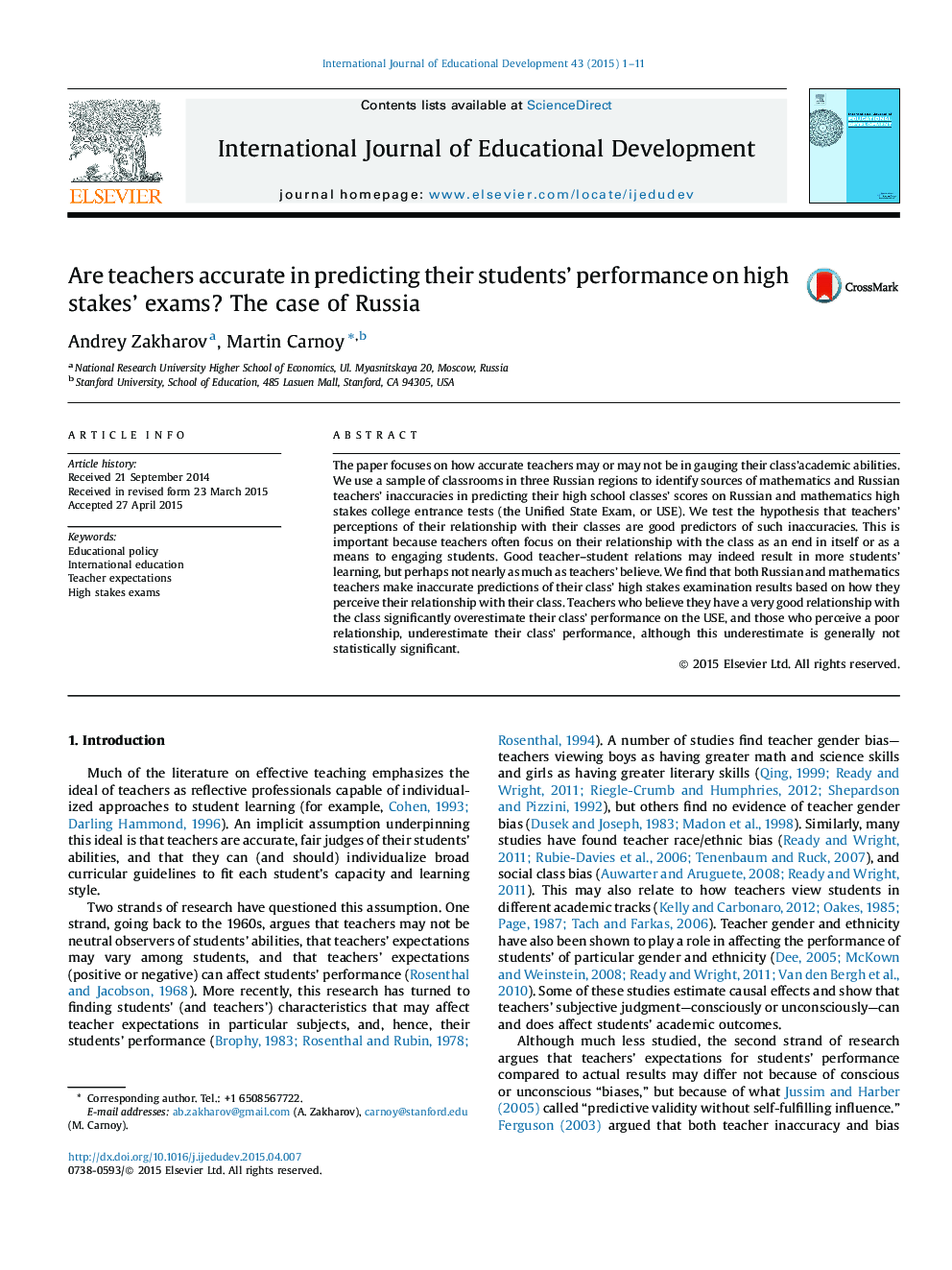| کد مقاله | کد نشریه | سال انتشار | مقاله انگلیسی | نسخه تمام متن |
|---|---|---|---|---|
| 356021 | 1435109 | 2015 | 11 صفحه PDF | دانلود رایگان |
• Students in Russia take high stakes secondary school exit exams (USE)
• Teachers have considerable information about student achievement.
• Teachers who report good class relations over predict their class’ USE results.
• Teachers who report poor class relations under predict USE results.
• Even with good information about students, teachers may not be accurate.
The paper focuses on how accurate teachers may or may not be in gauging their class’academic abilities. We use a sample of classrooms in three Russian regions to identify sources of mathematics and Russian teachers’ inaccuracies in predicting their high school classes’ scores on Russian and mathematics high stakes college entrance tests (the Unified State Exam, or USE). We test the hypothesis that teachers’ perceptions of their relationship with their classes are good predictors of such inaccuracies. This is important because teachers often focus on their relationship with the class as an end in itself or as a means to engaging students. Good teacher–student relations may indeed result in more students’ learning, but perhaps not nearly as much as teachers’ believe. We find that both Russian and mathematics teachers make inaccurate predictions of their class’ high stakes examination results based on how they perceive their relationship with their class. Teachers who believe they have a very good relationship with the class significantly overestimate their class’ performance on the USE, and those who perceive a poor relationship, underestimate their class’ performance, although this underestimate is generally not statistically significant.
Journal: International Journal of Educational Development - Volume 43, July 2015, Pages 1–11
